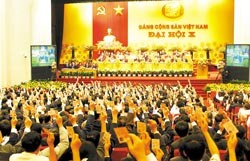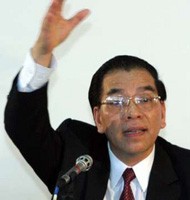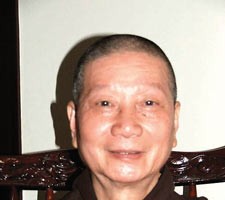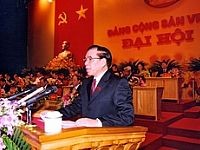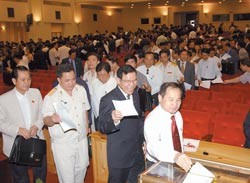On April 19, Deputy Minister of Planning and Investment Tran Dinh Khien had an interview with local and foreign press agencies attending the 10th National Party Congress at the International Conference Center in Ha Noi.
* SGGP: There is a fact that the State investment is being deployed inappropriately with much waste; some major national construction works have not been completed as planned. Why is this and what measures are planned to resolve this?
* Deputy Minister Tran Dinh Khien: In the past, the government always had instructions to improve the investment effectiveness. In 2003, the government issued Instruction 29 on Improving the Quality of Investment Management. In 2005, Instruction 21/CP on Planning Appraisal and Project Supervision was issued.
If projects are reviewed as ineffective, they won’t be implemented. At the moment, most of the debts in basic construction projects of the central units are paid for. Local projects have only settled 50 percent of the debts. And unplanned projects will be dealt with in the time ahead.
From the PMU18 case, the government has instructed related units to review on their responsibilities. In terms of investment management of basic construction, the Ministry of Investment and Planning admitted its mistake that it has only focused on capital distribution, not effectively monitored and evaluated the implementation of the project.
To avoid unfocused investment, the ministry is determined to reduce the number of ineffective or dispersingly distributed works.
* SGGP: Much has been said about the separation between the administrative management function of the State and the business management function of enterprises, and the eradication of “governing body”. However, it works rather slowly. What should be done to minimize administrative intervention in business operation?
* As businesses are regulated by the laws, direct administrative intervention in business operation should be avoided. This is said in the Investment Law, including the conversion into one-member limited company or joint-stock company.
* Tuoi Tre Newspaper: In the PMU 18 case, there have been no comments from the Ministry of Investment and Planning. Up to now, which lessons and solutions have been drawn out by the ministry?
* The government is giving instructions to the agencies to draw the lessons from this case. The ministry also delivered a report on ODA capital management.
* Dai Doan Ket Newspaper: Does the PMU 18 case affect the investment environment?
* I think it depends on the attitude of the Party and the government towards fighting corruption. If we tackle corruption seriously, the investment environment will be improved. In June 2006, foreign investors will meet in a forum and discuss this matter with the Vietnamese government.
* Reuters: This year, Viet Nam sets the target of 7.5 to 8.0 percent of economic growth. It is a very high rate. On which basis did you set the target?
* We reckon on the basis of the past years’ facts. On the other hand, we based on the full mobilization of capital and resources of all economic sectors. Social resources, especially human resources, are also mobilized to implement such targets. We also create the best investment environment for foreign investors. Earlier, the mechanism of capital mobilization is 30 percent from local sources and 50 percent from overseas sources. Now, two third is domestic capital and the rest is foreign capital.
* Reuters: Are foreigners allowed to buy shares of Vietnamese businesses?
* They are allowed under the law, except for some conditional businesses and investment fields. Foreign investors can currently buy 30 percent of shares with the percentage being increased in the coming months. Viet Nam also considers it as foreign indirect investment.
* BBC Vietnamese Department: Last year, Viet Nam missed its chance to join WTO. It is expected that Viet Nam will enter the organization in 2006, so what is the firm date? What does Viet Nam lose if joining late?
* In 2005, there were still four countries with which Viet Nam did not conclude talks. In 2006, Viet Nam may join the organization, but no firm date has been decided yet.
* Xinhua News Agency: It is said that the Ministry of Investment and Planning has planned to reduce the export of material and mineral products such as oil and coal. However, such products bring in very big revenues for Viet Nam. How will Viet Nam resolve the issue of excessive import?

* It is our plan to develop oil industry. We built oil refineries and then we will build petrochemical plants. It will reduce export, and also import volume, too. Because domestically refined oil can substitute imported oil. It is a part of the five-year plan, in which we considered development-related targets in an overall development picture.
We aim to strengthen the processing industry and increase the rate of added values in many kinds of products. In the early stage of industrialization, most countries export crude material, and so did we. We will improve processing industry and fine export. It has been the trends in many countries, not only Viet Nam.
